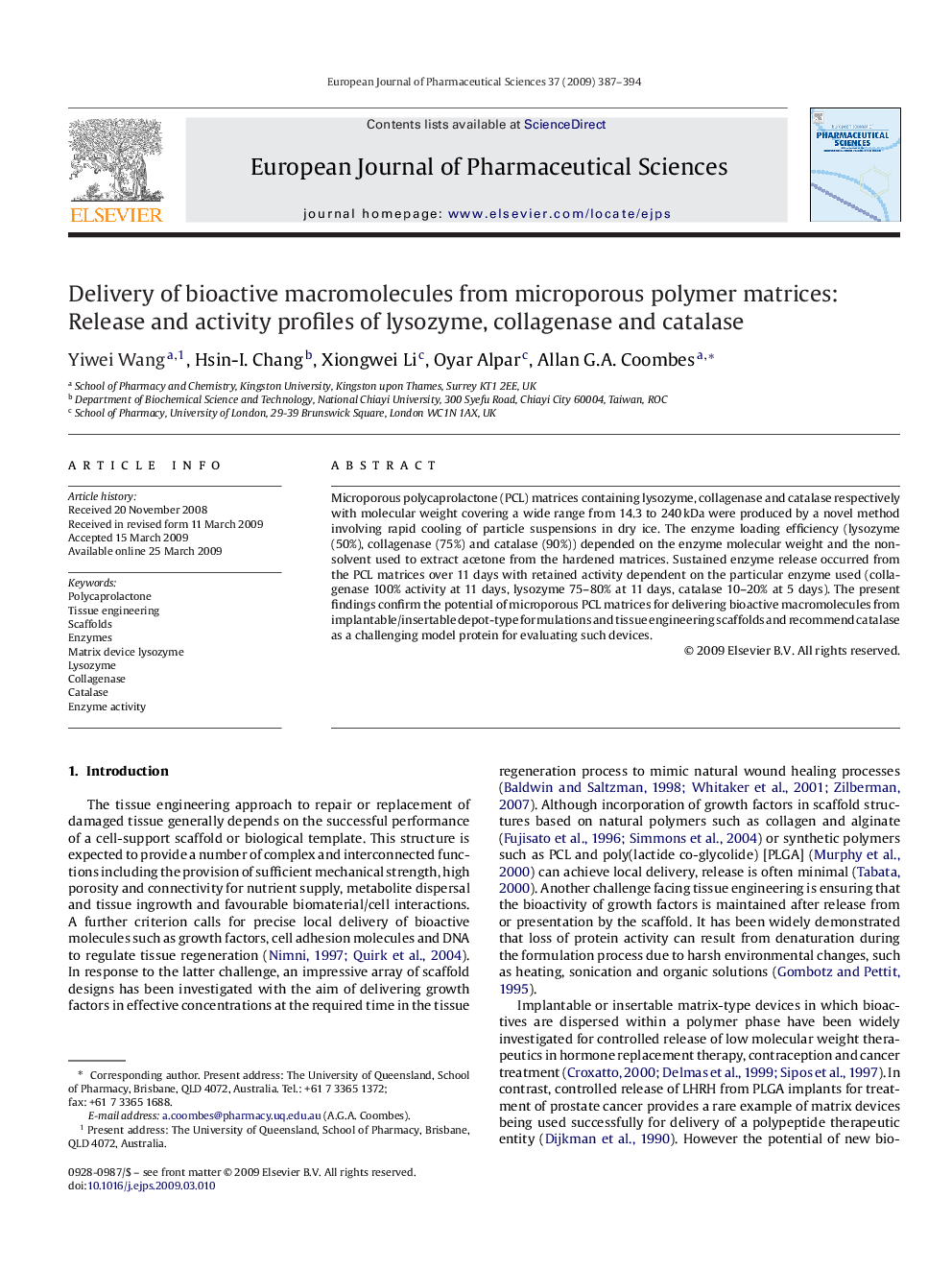| Article ID | Journal | Published Year | Pages | File Type |
|---|---|---|---|---|
| 2481695 | European Journal of Pharmaceutical Sciences | 2009 | 8 Pages |
Microporous polycaprolactone (PCL) matrices containing lysozyme, collagenase and catalase respectively with molecular weight covering a wide range from 14.3 to 240 kDa were produced by a novel method involving rapid cooling of particle suspensions in dry ice. The enzyme loading efficiency (lysozyme (50%), collagenase (75%) and catalase (90%)) depended on the enzyme molecular weight and the non-solvent used to extract acetone from the hardened matrices. Sustained enzyme release occurred from the PCL matrices over 11 days with retained activity dependent on the particular enzyme used (collagenase 100% activity at 11 days, lysozyme 75–80% at 11 days, catalase 10–20% at 5 days). The present findings confirm the potential of microporous PCL matrices for delivering bioactive macromolecules from implantable/insertable depot-type formulations and tissue engineering scaffolds and recommend catalase as a challenging model protein for evaluating such devices.
